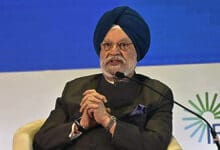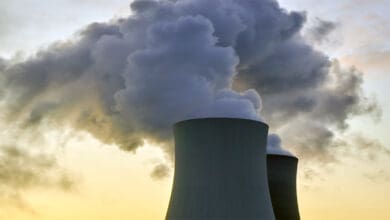Amid fuel prices continuing to remain stubbornly high despite international rates falling, Petroleum Minister Hardeep Singh Puri said over ₹1.5 lakh crore of oil bonds issued by the previous UPA government remains to be paid, limiting fiscal space and restricting financial freedom of oil firms. A day after Congress leader Rahul Gandhi launched a scathing attack on the government for raising cooking gas prices, Puri took to Twitter to blame the rampant impunity and policy paralysis of the UPA government.
“In India’s Lost Decade known for rampant impunity & policy paralysis, UPA Govt saddled future govts with Oil Bonds. More than ₹1.5 lakh cr of these remain to be repaid, thus tying up crucial resources, limiting fiscal space & restricting financial freedom of OMCs,” he tweeted.
Puri, a 1974 batch Indian Foreign Service officer who served as the Permanent Representative of India to the United Nations from 2009 to 2013, said the exploration and production (E&P) sector was fund-starved.
“The important E&P sector was fund-starved. As a result, our import bill continues to be high. Nearly ₹3.6 lakh cr profits of oil companies was instead used for price stabilisation by a remote controlled govt of economic experts to hide behind All is Well smokescreen,” he tweeted.
On Wednesday, Gandhi had attacked the government over the rising fuel prices saying Rs 23 lakh crore has been collected in the last seven years by increasing prices.
His party rejected the oil bond burden theory, first floated by Finance Minister Nirmala Sitharaman, for not lowering the prices, saying the ₹1.3 lakh crore are not even due for payment so far and the government had collected much more revenue in seven years from excise duty hikes.
Last month, Sitharaman had ruled out a cut in excise duty on petrol and diesel to ease prices, saying payments in lieu of past subsidised fuel pose limitations.
Petrol and diesel as well as cooking gas and kerosene were sold at subsidised rates during the previous Congress-led UPA government. Instead of paying for the subsidy to bring parity between the artificially suppressed retail selling price and the cost that had soared because of international rates crossing $100 per barrel, the then government issued oil bonds totalling ₹1.34 lakh crore to the state-fuel retailers.
These oil bonds and the interest thereon are being paid now.
Of the ₹1.34 lakh crore of oil bonds, only ₹3,500 crore of principal has been paid and the remaining ₹1.3 lakh crore is due for repayment between this fiscal and 2025-26, she had said on August 16.
The government has to repay ₹10,000 crore this fiscal year (2021-22). Another ₹31,150 crore is due to be repaid in 2023-24, ₹52,860.17 crore in the following year and ₹36,913 crore in 2025-26.
However, the collections from the hike in excise duty far exceed the amount due to be paid to oil companies.
Excise duty on petrol was hiked from ₹19.98 per litre to ₹32.9 last year to recoup gain arising from international oil prices plunging to multi-year low as pandemic gulped demand.
Minister of State for Petroleum and Natural Gas Rameswar Teli had in July told Parliament that the Union government’s tax collections on petrol and diesel jumped by 88% to ₹3.35 lakh crore in the year to March 31 from ₹1.78 lakh crore a year back.
Excise collection in pre-pandemic 2018-19 was ₹2.13 lakh crore.
The hike in taxes last year did not result in any revision in retail prices as they got adjusted against the reduction that was warranted because of the fall in international oil prices.
But with the demand returning, international oil prices have soared, which have translated to record high petrol and diesel prices across the country. More than half the country has petrol at over ₹100-a-litre mark and diesel is above that level in Rajasthan, Madhya Pradesh and Odisha.
The rates did not come down when international oil prices fell from $77 a barrel to under $65. Petrol and diesel prices have been cut by only a few paise per litre while LPG rates have been hiked by ₹190 per cylinder since July.













